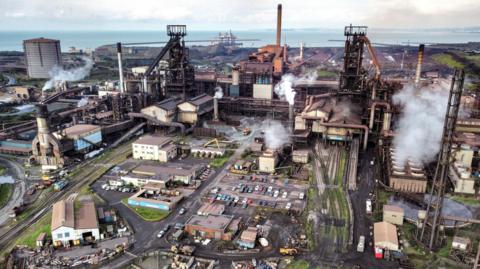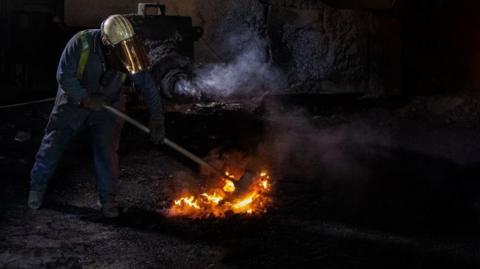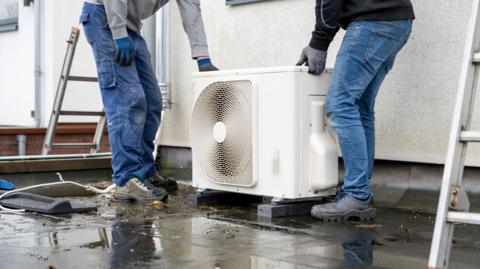The changes will have a dramatic impact on direct emissions of planet-warming gases from Wales.
The blast furnaces were constantly fed with coal, and their closure will have more than halved Wales' industrial emissions since 2022, according to the CCC.
But environmentalists have warned the situation at Port Talbot could damage public support for climate action if it is seen to mean job losses and the demise of heavy industry.
In its report, the CCC said there were "important lessons to learn", and that governments in both Westminster and Cardiff Bay should have been better prepared.
"The challenges facing the UK steel sector have been clear for many years and, given the significance of this site to the local economy, a more proactive and decisive transition plan should have been developed," they argued.
The UK government should have taken steps to make industrial electricity prices more competitive, and convened "early and collaborative" negotiations between plant owners, workers and the community, the report said.
The Welsh government could have ensured "the right training and re-skilling programmes were in place well before closure", it added, and developed a local industrial strategy to support alternative employment in areas like heating services and floating offshore wind.
The committee said Port Talbot's experience should now be used "to guide future efforts to decarbonise other strategically and locally-significant emissions-intensive industries," citing Pembroke's oil refineries as an example.


